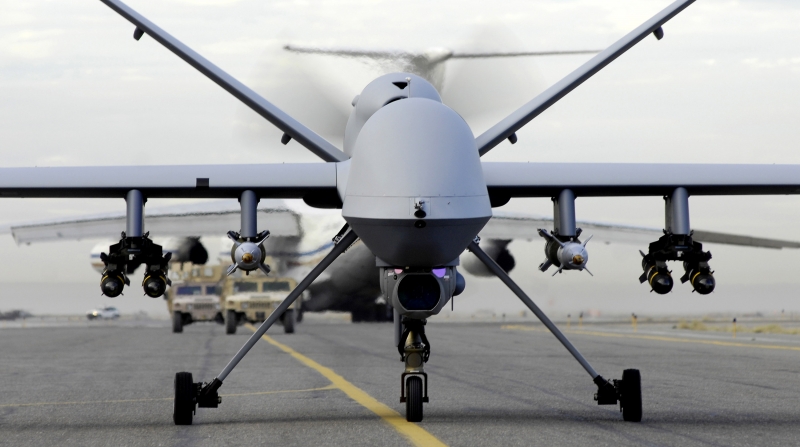In brief: The United States' AI war with China is starting to sound more literal following news that the Pentagon is considering the development of a vast network of artificial intelligence-powered technology, drones, and autonomous systems to counter threats from the Asian nation.
The Wall Street Journal writes that deputy secretary of defense Kathleen Hicks will provide details later today about the DoD's plans to spend hundreds of millions of dollars on thousands of air-, land- and sea-based artificial-intelligence systems that are designed to be "small, smart, cheap."
With tensions over Taiwan continuing to rise and China's military advantage in personnel and manned equipment, the US wants to counter its rival's expanding military with an army of artificial intelligence-based autonomous systems, including self-piloting air- and sea-drones.
Referencing the bureaucracy at the Pentagon that slows the development and deployment of cutting-edge weapons, Hicks said: "We're not at war. We are not seeking to be at war, but we have to be able to get this department to move with that same kind of urgency because the PRC isn't waiting."
The DoD last week unveiled its Replicator program that can produce thousands of AI-powered uncrewed weapons to help it overcome China's advantage of having more ships, people, and missiles. The WSJ notes that the latest Pentagon budget request includes $1.8 billion for artificial intelligence for fiscal 2024.
The program would make production "less expensive, put fewer people in the line of fire, and [they] can be changed, updated, or improved with substantially shorter lead times. We'll counter the PLA's mass with mass of our own, but ours will be harder to plan for, harder to hit, harder to beat," explained Hicks, who is expected to unveil more details about Replicator today.
China is also investing more in its own autonomous systems, including a substantial amount to produce weapons with swarming capability.
The US has introduced numerous restrictions on the export of Nvidia and AMD AI chips to China to prevent them from being used in military applications. It has led to a black market for the GPUs, and there were new restrictions placed on Middle Eastern countries to stop the products from finding their way to China via other nations. It's also been claimed that Huawei has built an AI GPU that matches Nvidia's A100.
The use of autonomous weapons has been a controversial area for years. Israel is one of the leaders in this field, but other nations are catching up. In February, a new Lockheed Martin training jet was flown by artificial intelligence for 17 hours, marking the first time that AI has been engaged in this way on a tactical aircraft. That same month saw the US Navy take delivery of a ship that can operate autonomously for up to 30 days.
In February, more than 60 nations agreed to address concerns over AI use in warfare at the first global Summit on Responsible Artificial Intelligence in the Military Domain (REAIM). The only attendee not to sign this call for action was Israel.
